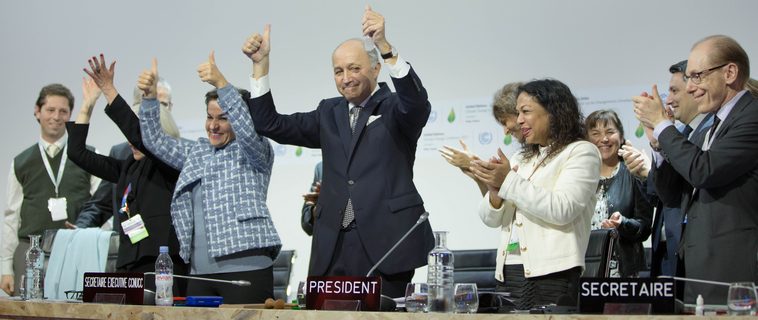The Information and Communication Technology (ICT) industry is taking an unprecedented step forward in tackling climate change with the release of the first-ever science-based pathway to reduce greenhouse gas emissions across the telecoms sector.

A new Science-Based Target (SBT) for the industry includes emissions reductions trajectories for mobile, fixed and data centre operators to meet the ambitious Paris Agreement goal of limiting global warming to 1.5°C, designed to substantially reduce the risks and effects of climate change.
“Today’s landmark agreement underlines how the ICT sector is taking urgent and unprecedented action in response to the climate emergency,” said Mats Granryd, Director General, GSMA.
“The mobile industry is one of the first major sectors in the world to voluntarily set an SBT for emissions reductions. Our sector will form the backbone to the future global economy and has a unique role to play in reaching a net zero economy. A decarbonised world will be a digital world, so we must show leadership and take responsibility for driving positive climate action.”
The step supports the commitment by the GSM Association (GSMA) – which represents the interests of mobile operators worldwide – to helping the mobile industry achieve net zero carbon emissions by 2050.
Some 29 operator groups representing 30% of global mobile connections are already committed to SBTs and many more will now be able to set targets by applying the recommendations released on Friday, February 28, 2020.
The GSMA has also launched a Climate Toolkit for operators which includes company guidance for setting science-based targets.
Renewable energy to drive emissions reductions
The SBT sets emissions trajectory reductions over the decade (2020-2030) for each ICT sub-sector. For example, mobile network operators adopting the SBT are required to reduce emissions by at least 45% over this period.
The switch to renewable and low-carbon electricity is expected to account for the bulk of reductions over this period, alongside efforts by operators to become more energy efficient. Access to renewable energy, which can vary widely depending on an operator’s geographic location, is therefore a key factor determining an operator’s ability to meet the SBT.
Mobile industry demonstrating leadership on climate action
Friday’s announcement forms part of the GSMA’s climate action roadmap for the mobile industry, which has already seen operators disclose their climate impacts and emissions via the internationally recognised CDP global disclosure system.
The industry is also committed to advancing mobile technology innovations in areas such as big data and IoT that can enable energy-efficient solutions across multiple sectors, including transport, agriculture, building and energy.
A recent report produced by the GSMA and the Carbon Trust calculated that the use of mobile technology powered global emissions reductions of around 2,135 million tonnes CO2e in 2018 – almost ten times greater than the global carbon footprint of the mobile industry itself.
